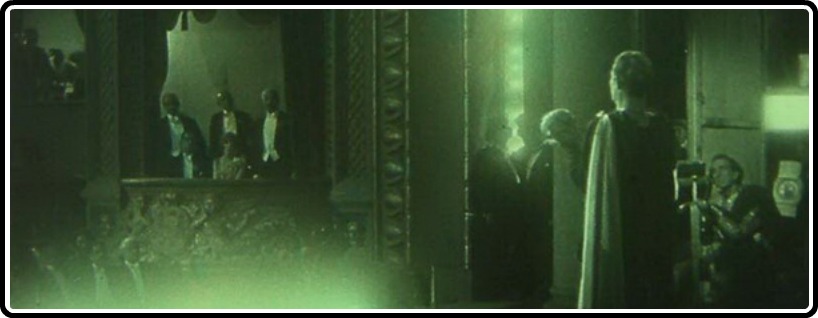Sure, finding any film that historians deem as “lost” is a thrilling find, but when a “lost” film from one of the greatest filmmakers in film history pops up, there are few other emotions felt outside of shock and utter glee.
That happened in 2011 when, in a New Zealand film archive, a print of John Ford’s lost comedy, Upstream, was discovered. Restored and screened months later thanks to the Academy Of Motion Picture Arts And Sciences, the film was thrust back into the spotlight and ultimately re-evaluated as the true classic of silent comedy that it is.
One of the many films from Ford’s silent days that had been presumed lost (roughly 60 of his 140-plus directed pictures are thought lost to history), Upstream is a rather unconventional Ford film, when looking at its premise. Set in the confines of a home housing various stage performers (ranging from a knife throwing team to a pair of vaudeville hoofers), when one of their members is asked to go to London to perform Hamlet. However, the man isn’t being requested for his talent, as his name (the ever so perfect Brashingham) is far more important to the people behind the staging of the play than his actual ability. Ultimately returning back to his home turf after a run in London, the conceited thespian gets what he has coming to him, in what is best described as one of the more uproarious comedies that Ford put on screen. And it’s one of his most intriguing silent pictures, even despite its rather small scale.
Narratively and performance-wise, the film is relatively standard silent fair. Viscerally laugh-inducing at moments, the film really gets quite a deal out of its actors, particularly the hilariously vain Earle Fox who jumps from a soup eating knife thrower to pretentious thespian. This happens with a simple glance into a mirror, and is just the first in a long line of beautifully composed sequences found within this breezy hour long feature.
It’s ultimately a notable picture, however, due to the craft that Ford brings to the film. Set almost entirely within confined spaces, unlike his epic Western features he’d become a legend for shooting, the film still has various inspired theatrical moments. Be it Ford’s use of reflective surfaces, his grace with the handful of really strong comedic beats, or his audaciously shot silent attempt at shooting Hamlet, the film is most notable by those who have studied Ford’s career, as being the moment in which he truly became the John Ford we all have become accustomed to calling one of this country’s greatest filmmakers. Taking a lot of inspiration from fellow Fox employee Fritz Lang, the film uses to great effect forced perspective (particularly in that Hamlet sequence), and is also a rather beautiful film photography wise. The film is tinted in various ways during different sequences (primarily green, blue or sepia) and the lighting is absolutely superb.
It’s also a rather entrancing picture thematically. While, at the surface, nothing more than a standard laugher, the film holds within it something very near and dear to Ford’s heart: class. Throughout his Western films, and especially within this picture, the idea of class (be it actual or perceived) comes through rather clearly, particularly in the film’s final moment. Brashingham has returned to his vaudeville home after a run in the actual theater in London, only to have his home literally kick him to the curb. A direct kick to the bottom of the bourgeoisie, the film plays as a comedy at heart, and also a delightfully fun satire of sorts. It’s also a meditation, of sorts, on family, arguably Ford’s biggest canonical topic. At the very base level about a man leaving his family for superficial riches (money, fame, etc) and ultimately being rejected by them for that, this is a very Ford-esque picture, despite being on a much smaller scale than anything we’re familiar with from the filmmaker.
But where is this film’s home video release? Still without a release years after its return to the spotlight, the film is more than deserving of some sort of Blu-ray release, particularly given the recent renaissance Ford’s canon has seemed to have had. Stagecoach is now a Criterion member, and with The Long Voyage Home still on its way (hopefully), there may be room for a Bucking Broadway-type silent picture to go along with a release of that film. And this could do the job. Or maybe as a Ford-centric Eclipse set? Who knows? This is simply a picture that is more than deserving of a home video release, as it’s an absolutely superb comedic picture.



